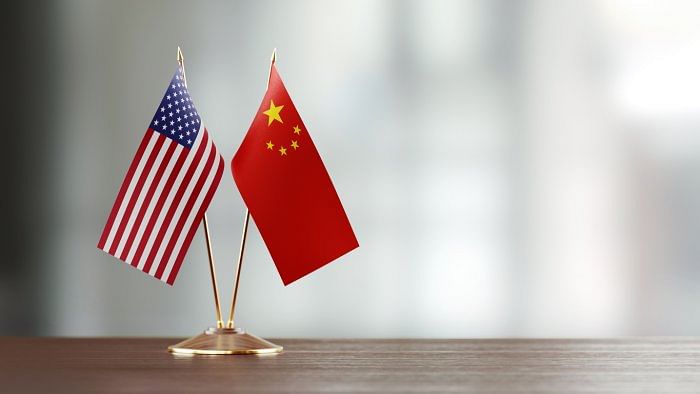
China has been "very aggressive" in the region and in some cases, they have been "coercive", US Defence Secretary Lloyd Austin said on Sunday.
"China has been busy modernising its military and developing capabilities and trying to close the competitive edge that we have always enjoyed," Austin told ABC News during a talk show.
"They have also been very aggressive in the region. In some cases, they have been coercive. And some of that coercion has been directed against our allies. And our allies are very important to us," he said, referring to Beijing's disputes with its neighbours.
China moved over 60,000 well-armed troops who were mobilised for annual exercises, to contentious areas like Pangong Tso in eastern Ladakh in May last year, prompting India to match the People’s Liberation Army’s (PLA) mobilisation which led to an over eight-month-long standoff.
After lengthy rounds of talks, the two sides simultaneously withdrew troops from Pangong Tso area last month while talks are on for the withdrawal of soldiers from the rest of the areas along the Line of Actual Control (LAC) in eastern Ladakh.
China claims sovereignty over all of South China Sea. Vietnam, Malaysia, the Philippines, Brunei and Taiwan have counter claims.
China is engaged in hotly contested territorial disputes in both the South China Sea and the East China Sea. Beijing has built up and militarised many of the islands and reefs it controls in the region. Both areas are stated to be rich in minerals, oil and other natural resources and are also vital to global trade.
President Joe Biden in his foreign policy address had described China as the "most serious competitor" to the US and vowed to confront Beijing on various fronts, including human rights, intellectual property and economic policy.
Responding to a question, Austin said that President Biden has been clear that his administration will have a different type of relationship with the Saudis going forward.
"It doesn't mean that it won't be a good relationship. I fully expect that it will be a good relationship, but it will be a bit different,” he said.
The Biden administration has announced to end the support for the Saudi-led military offensive in Yemen, calling it a “humanitarian and strategic catastrophe."
"My focus is to defend this country and protect our interests. And Saudi is -- from my perspective, it is a -- it is a strategic partner in the region. And, certainly, we have security commitments in that area. And it's necessary that we're going to have to work together to make sure that we achieve our goals and objectives,” he said.
"But I think, just because you have a good strategic relationship with an ally or partner, it doesn't mean that you can't hold them accountable for various things,” Austin said.
Austin is the first black defence secretary of the United States. During his 41 years of career in the US Army, Austin broke through many racial barriers along the way.
"I can remember going to a bus station with my mother and looking at the restrooms that were male, female, and coloured. That's, kind of, how I started as a child. And to rise to be able to rise to a position of secretary of defence in my lifetime is quite incredible,” he said in response to a question.
"Well, you have to ask yourself, you know, why it took so long to have an African-American secretary of defence. What we want to make sure happens going forward is that I am not the last African-American secretary of defence, that we create those opportunities in our ranks for African-Americans and Hispanics to rise to the very highest ranks in our military,” Austin said.